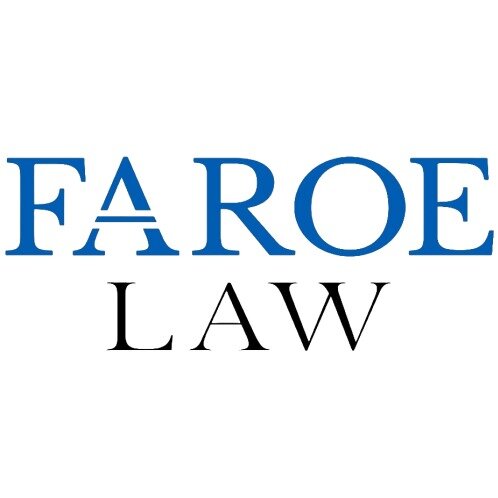Best Tax Lawyers in Faroe Islands
Share your needs with us, get contacted by law firms.
Free. Takes 2 min.
Or refine your search by selecting a city:
List of the best lawyers in Faroe Islands
About Tax Law in Faroe Islands
The Faroe Islands, an autonomous territory within the Kingdom of Denmark, have their own distinct tax system, although it shares some similarities with Danish tax legislation. The Faroese tax system is governed by specific local regulations and is administered by the Faroese Tax Administration (TAKS). Taxes in the Faroe Islands include corporate taxes, individual income taxes, and VAT (value-added tax), among others. The territory operates a relatively straightforward tax system designed to support economic activity in this North Atlantic archipelago.
Why You May Need a Lawyer
Seeking legal advice in the field of tax can be crucial for a number of reasons. Business owners may need assistance with understanding corporate tax obligations or VAT compliance. Individuals might require help during tax disputes or audits. Foreign entities and expatriates may also seek guidance on cross-border taxation issues or the implications of dual tax agreements. A lawyer specializing in tax law can provide expertise and representation to navigate these often complex scenarios.
Local Laws Overview
The Faroese tax system is distinct from that of Denmark in key aspects. The tax year is calendar-based, and individuals are taxed on worldwide income, while businesses are typically taxed on profits generated within the Faroe Islands. Additionally, there's a unique feature of the Faroese tax system where income tax rates can slightly vary between municipalities. Tax compliance and reporting are generally regimented, requiring accurate annual and sometimes periodic filings with TAKS. The VAT system operates similarly to European standards, though specific rates and exemptions apply locally.
Frequently Asked Questions
How are individuals taxed in the Faroe Islands?
Individuals are generally taxed on their worldwide income if they are considered residents of the Faroe Islands. Non-residents are typically taxed only on income sourced from the Faroe Islands.
What is the corporate tax rate in the Faroe Islands?
The corporate tax rate in the Faroe Islands is generally aligned with the territory's commitment to a competitive tax environment but varies slightly depending on certain conditions and the nature of business activities.
When are tax returns due in the Faroe Islands?
The tax return deadline usually aligns with the calendar year, meaning that individuals and corporations need to file their taxes by a set date each year, often mid-year.
Is there a value-added tax (VAT) in the Faroe Islands?
Yes, the Faroe Islands have a VAT system similar to other European countries, with specific rates applicable to various goods and services.
How can expatriates manage their tax liabilities?
Expatriates may need to consider tax treaties and seek advice on double taxation agreements to optimize their tax liabilities. Legal assistance can ensure compliance and proper planning.
Are there any tax incentives for businesses?
The Faroese government, at times, offers specific incentives and grants to encourage business development and inward investment in key industries.
What are the penalties for late tax filings?
Late filings can result in penalties and interest on unpaid taxes. It’s important to seek legal advice to understand these penalties and potentially mitigate them.
Do the Faroe Islands have any tax treaties with other countries?
Yes, the Faroe Islands have tax treaties with several countries, primarily to avoid double taxation and prevent tax evasion.
How does one appeal a tax decision?
You can appeal tax decisions to TAKS, and it’s often advisable to seek legal counsel to navigate this process effectively.
What records must I keep for tax purposes?
Taxpayers should maintain comprehensive accounting records, invoices, and documentation that support their tax filings for several years according to TAKS requirements.
Additional Resources
For further guidance, individuals and businesses can contact the Faroese Tax Administration (TAKS), seek information through the official Faroe Islands government portal, or consult professional organizations and legal firms specializing in Faroese tax law.
Next Steps
If you require legal assistance with tax matters in the Faroe Islands, your first step should be to consult with a lawyer who specializes in Faroese tax law. Consider setting up an initial consultation to discuss your situation and understand your options. It's also recommended to gather all relevant documentation for a more productive consultation. Establish a plan with your legal advisor to address your tax obligations or disputes effectively.
Lawzana helps you find the best lawyers and law firms in Faroe Islands through a curated and pre-screened list of qualified legal professionals. Our platform offers rankings and detailed profiles of attorneys and law firms, allowing you to compare based on practice areas, including Tax, experience, and client feedback.
Each profile includes a description of the firm's areas of practice, client reviews, team members and partners, year of establishment, spoken languages, office locations, contact information, social media presence, and any published articles or resources. Most firms on our platform speak English and are experienced in both local and international legal matters.
Get a quote from top-rated law firms in Faroe Islands — quickly, securely, and without unnecessary hassle.
Disclaimer:
The information provided on this page is for general informational purposes only and does not constitute legal advice. While we strive to ensure the accuracy and relevance of the content, legal information may change over time, and interpretations of the law can vary. You should always consult with a qualified legal professional for advice specific to your situation.
We disclaim all liability for actions taken or not taken based on the content of this page. If you believe any information is incorrect or outdated, please contact us, and we will review and update it where appropriate.
Browse tax law firms by city in Faroe Islands
Refine your search by selecting a city.













